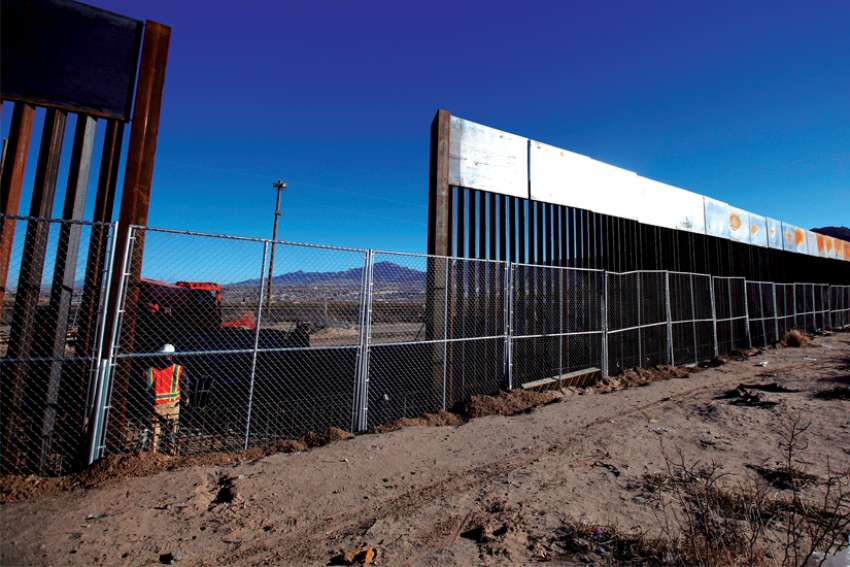In Canada it can be seen surrounding the “illegal” or “irregular” migrants crossing our borders and putting stress on our refugee system. Or in the United States, where President Donald Trump’s vow to build a wall on its southern border has caused chaos in the corridors of power and beyond. And seemingly everywhere, the threat of terror attack is constant, whether at home or in church.
“Often when something is turned into a security issue it gets pulled away from the kind of sphere where we would normally have reasoned debate,” said Benjamin Muller, associate professor of political science at King’s University College in London, Ont., and program co-ordinator of Social Justice and Peace Studies.
Without reasoned debate, he said, security often gets wrapped up in hysteria that winds its way through the fractured political process.
Which is why King’s will begin taking students to the frontlines of the issue with the launch of its new Critical Security Studies diploma and certificate program this fall. Students will study diverse topics such as terrorism, war and peace, security and dystopias. Some of the courses in the program are already offered at King’s.
“We’re trying to critically context that and think about ways some of these issues, so migration would be one of them, how do we bring something like that back into the sphere of democratic debate as opposed to pushing it outside of that into this realm of national security and high politics,” said Muller.
Critical Security Studies as a field has been around since the fall of the Berlin Wall and the ensuing collapse of communism. But King’s, a Catholic college at Western University, is the first Canadian university to offer it as an undergraduate certificate and diploma program for post-graduate studies.
Students will need to complete five of the offered courses for a certificate or diploma. Muller sees graduates gaining skills that can lead to work with the RCMP, CSIS (Canadian Security and Intelligence Service), the Canada Border Services Agency, NATO, non-governmental organizations or in academia.
Canada’s refugee situation lends itself perfectly to the program, said Muller, who will work with Derek Silva, an assistant professor in the sociology department, in running the program.
“How is it we come to have a conversation about this particular migration where people are talking about it as a threat, a danger, a security issue, where does that come from and how does that happen? There’s a totally different way to look at that and say this is an economic issue, these are migrants looking for better labour opportunities, better lives,” said Muller.
It’s easy to see how that’s happened post-9/11, where everything has become a security matter, said Muller. You need look no further than government where various departments have securitized their functions as a way of accessing more funds.
“I think in the immediate post-9/11 period that became quite evident and I think it still lingers.”
And has also become a problem, he believes, where government policy is framed around security as opposed to politics.
King’s students enrolled in these courses have seen it up close. This year Muller brought students to the U.S.-Mexico border for an on-the-ground look at the border issue. They were surprised to see on one side of the border chaos, looking like a war zone, and on the other side, Mexico.
“Those kinds of things, no amount of reading and analysis can do what a simple experience in an afternoon like that can do as a learning opportunity,” he said.


